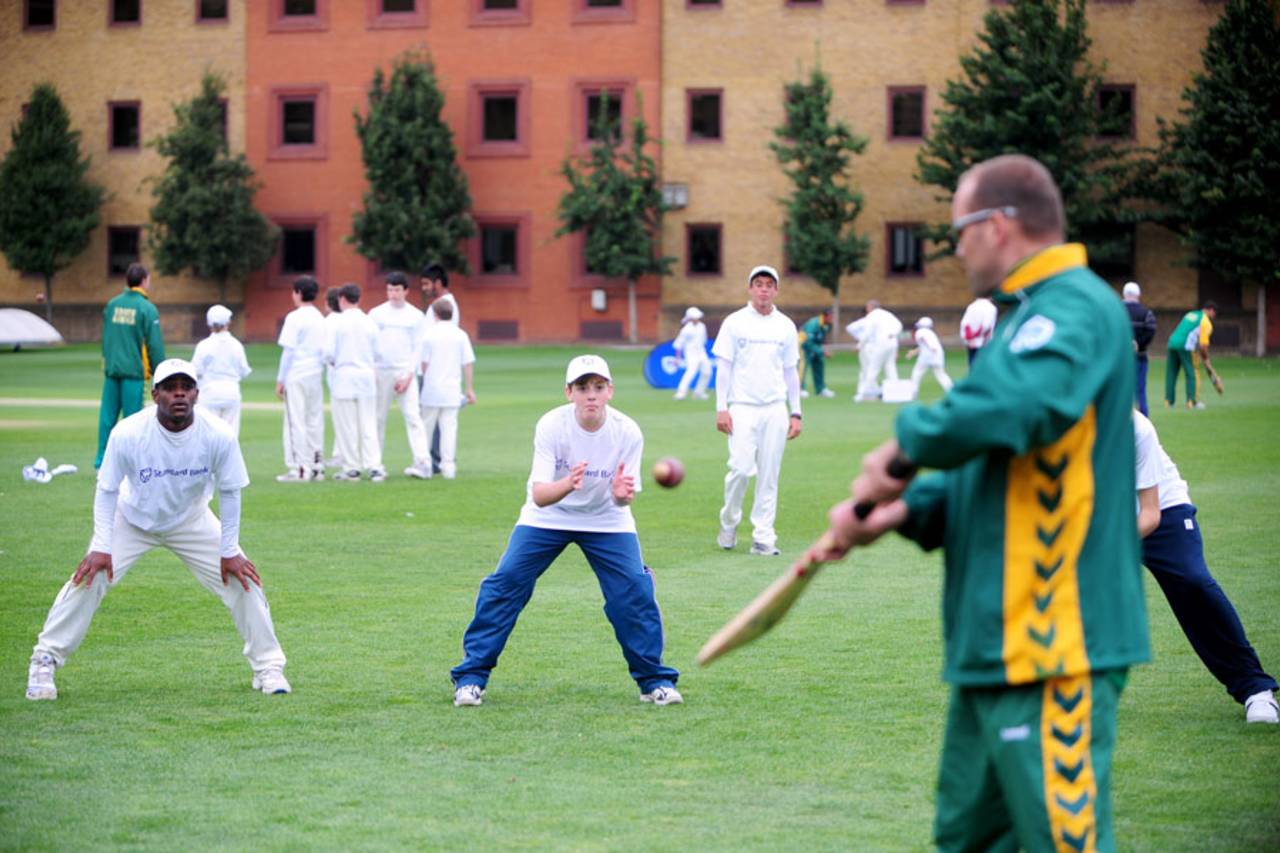I used to live with a woman who came from Nigeria. Nice girl. Smart. Funny. Tolerant of my quirks. But beyond a borderline obsession with Thierry Henry's thighs, not all that interested in sport. Although if being passive aggressive when someone touches your weave was an Olympic event, she could have represented England. And you know what? I'd have been damn proud of her if she did, just as family and friends of the cricketers born outside the country that are in the current England set-up must be proud of them.
They'll also need a thick skin to go with that pride, mind you, as fans and media, particularly during series where England are doing well, like to take any opportunity to dust off the same old tired jibes about "Team UN" and "South Africa B".
They're jibes that often ignore that many of these players have been in England since they were children. Jibes that ignore that we live in an increasingly globalised, increasingly mobile society. A world where notions of nationality can be more complex than in the past. A complexity that is hard to accurately reflect in sporting legislation without leaving sufficient ambiguity for debate to rage over the perceived line between legitimate qualification and opportunism.
But that's a debate that leaves a far more fundamental question unanswered - why does the issue of confused nationality arise so often in English cricket?
Of course it's true that part of the answer lies in Britain's tangled colonialist past. But it's also a question that goes to the heart of the game in this country. A question that exposes an uncomfortable truth: that despite the improved performances of the national side during the past decade, England still has a talent pool that is stretched worryingly thin across 18 first-class counties.
For all the good work undertaken by the ECB through the Chance to Shine initiative, for the majority of England's population, cricket is still an activity their local state school is poorly equipped to teach, if it is taught at all. For them, cricket is a minority sport, one played by others, one they rarely see on terrestrial television, one without an obvious path to a career.
The results are clear from the demographics of the English team over the last 20 or 30 years: an over-reliance on players educated abroad or privately, where they are still taught the game, and on players with Northern or "commonwealth" backgrounds, communities where the game has a much wider base of support, with families willing to actively take their children to cricket rather than passively wait for cricket to be brought to them.
Supporters can debate the legitimacy of Trott and Pietersen playing in England's middle order. Or wonder if Cook and Broad - both products of private education - are really the best captaincy options available. But the real question is whether those players would have risen so high, or perhaps been even better equipped for international cricket, had they been faced with competition from the thousands of gifted athletes within the English state school system who get little or no chance to play the game.
The reality the ECB currently faces is that decades of government under-funding, and misguided policies that led to the selling off of school playing fields, have shifted the burden of introducing children to cricket from state education to grassroots clubs and leagues.
The consequence of that for a sport can be seen in the long-term failure of British tennis to produce top-quality players. Andy Murray may have just won Wimbledon but he is the exception that proves the rule. For all the millions that the Lawn Tennis Association pumps into the grassroots game, the problems of inadequate coaching in schools, lack of promotion of the game on television, and the perception that it is a middle-class sport remain too difficult to overcome.
English cricket is fortunately in a better position than tennis but until the game is taught, and taught well, to all our children, players in the national side will continue to be drawn from a limited cross section of the population. So while the English press might currently be full of confident predictions of Ashes victory, it's worth remembering just how much of England's success is based on planning and preparation. Lessons that have already been learnt by nations with a much larger talent pool to choose from.
Dave Hawksworth has never sat in a press box or charged a match programme to expenses
